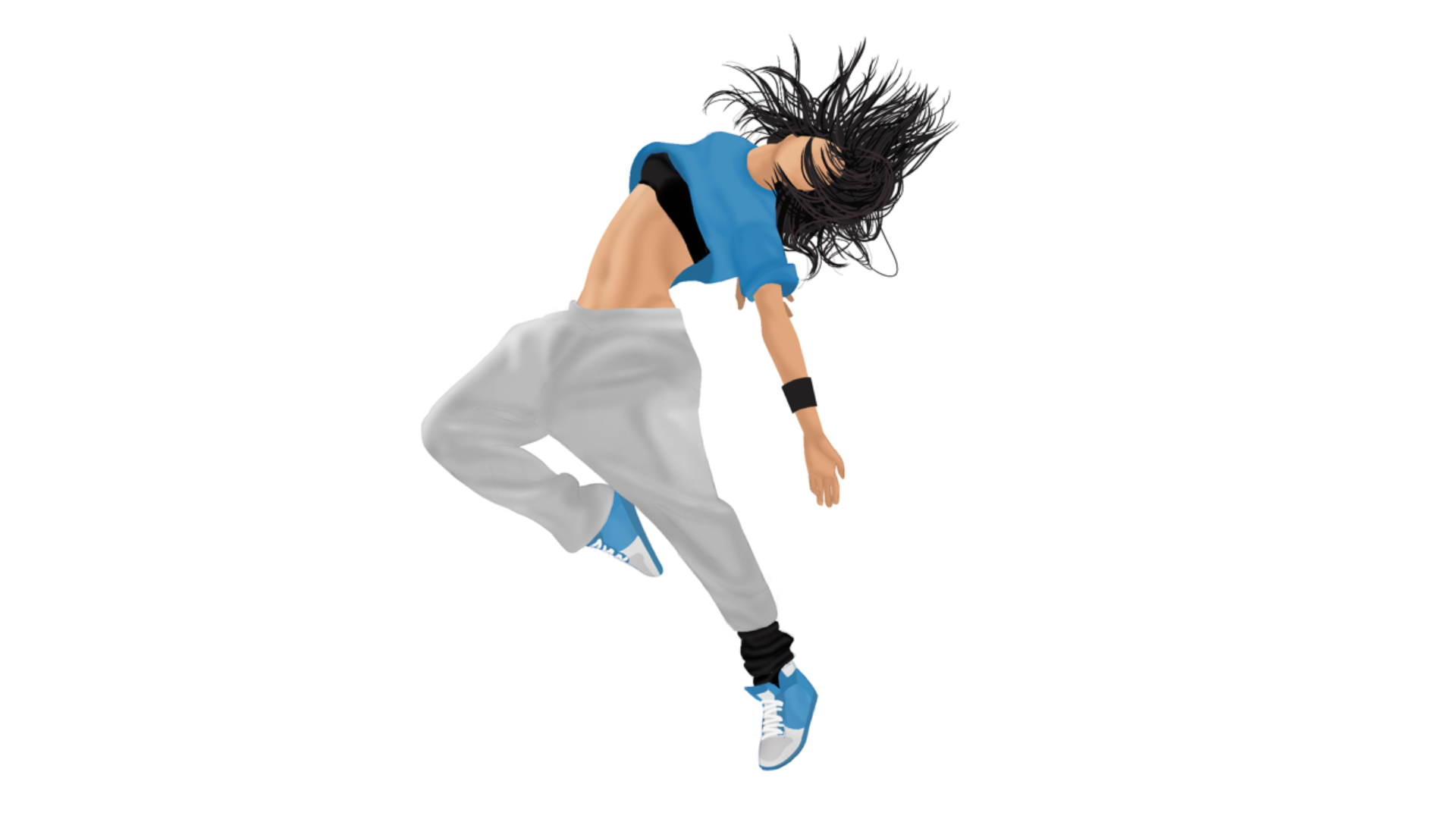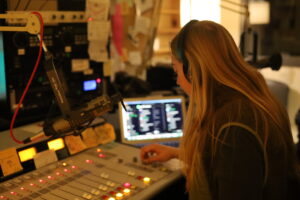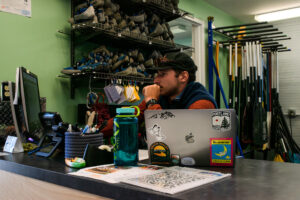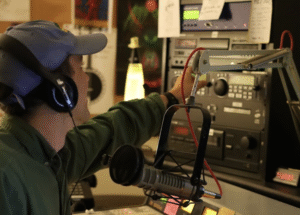In 1991 the Rennie Harris Puremovement American Street Dance Theater was founded, creating simultaneously the term “street dance theater” and the first ever hip-hop company. Since then, the company has performed all over the world, won countless awards and broken barriers as the first of its kind.
“Rennie created this company through after school programs and community outreach,” said longtime associate dancer and important hip-hop influence in his own right Rodney Hill when asked to recall the beginnings of Puremovement. “So, when he started, there was no other company in the U.S. or abroad doing only hip-hop— no fusion, nothing watered down, only hip-hop vocabulary. This is what Rennie Harris Puremovement was doing on stage.”
Rennie Harris took something that was traditionally done in family or communal spaces and put it on stage for a wider audience to appreciate. He not only used the hip-hop vocabulary, but he told the stories of the people of hip-hop.
“Now when people see him they just think ‘Oh, that’s Rennie,’ they don’t really look at all the work he’s done up until that point,” Hill commented as he reflected on the work Harris has put into the company. Being the first in anything is an uphill battle, but being the first to bring a Black art form to a traditionally White performance venue is groundbreaking. On the website for the company, Harris is quoted referring to the company as, “an international Hip-hop and Street dance ambassador.”
“[Ambassador] means a lot because you’re representing something more powerful than yourself. You’re representing a culture— the culture of hip-hop. You was nominated or you was chosen to travel, to represent what you’ve been doing. It’s like being an ambassador of your own country— it’s up there,” Hill said, adding that if anyone deserved to be called an ambassador in this way, it was Harris himself.
Harris was nominated, in a way, by the people of hip-hop. Those who he reached through his grass-roots beginnings of Puremovement supported him and voted for his success with their time and commitment, making the group emerge as something greater than any one individual.
“He brought me in for my own expertise at the time because I danced a lot in the 90s, you know, I would do a lot of the hip-hop social party dances. If anybody know anything about hip-hop, they’ll tell you it’s about social dance,” Hill explained how Harris would bring people from diverse backgrounds— social and artistic— in order to add unique elements to the performances of Puremovement. Hill went on to say how other alumni members had been beat-boxers, actors, gymnasts and studio dancers, all brought together by Harris to combine their different artistic skills to create something distinct.
“When you go abroad and you’re seeing these dancers doing something that you would see in the United States as a kid, you know you’ve seen the way everything developed and then you go overseas and it reminds you of how it started back in the day,” Hill commented. Some of his favorite memories are from his decades of performing and sharing his art form with others. He said that showing someone hip-hop for the first time was like getting to go back and experience it new again.
“We dance for ourselves, but if you can touch somebody and somebody gets something positive out of what you’re doing, that’s what counts,” Hill said.
On Nov. 7, Rennie Harris Puremovement American Street Dance Theater will be bringing “Nuttin’ but a Word” to campus. The company will perform in the Collins Center for the Arts, giving a pre-show talk at 6 p.m. and beginning the performance at 7 p.m.. They are a historic and innovative group and to be able to see the show for free as students of the University of Maine is an incredible opportunity. “Nuttin’ but a Word” combines the styles of numerous American-originating communal dance forms and subverts the ideas of what these genres are through their mixing. There is no one way to define this show or what it means to experience it other than to come out and watch it yourself.
“That phrase— ‘Nuttin’ but a Word’— means watch me, because what I’m gonna do is gonna outweigh everything that you just did. That comes out of the African American community, we always say that. But mainly that quote is from us touring around to a lot of theaters, being booked all over, and sometimes theaters would say ‘this may not fit in our season’ because they have all these ballet companies and modern companies. So [Rennie]’s saying, ‘you ain’t saying nothing but a word’ because when you see what we’re gonna present, it’s up there with the rest of them,” Hill talked about the inspiration for the title of the performance, how it relates to African American culture and the company itself. It adds a level of understanding to where the creator of the piece was coming from and to the company’s history: the adversity it has faced in its three and a half decades.
“Expect the unexpected is what I tell people when they come to watch Rennie Harris American Street Dance Theater. You know, people have an idea of what hip-hop street dance theater is like and Rennie does something that breaks their idea,” Hill emphasized the fact that there is not a single genre or stereotype that Puremovement fits into. It’s a form of expression for Harris that tells stories about Black Americans, about expressing oneself, about proving yourself amongst those who do not believe in you.
“I want the people on campus to come out,” Hill said, hopeful and clearly proud to share what he has been a part of for over 20 years. “It should be in every dorm, in every student center, it should be popping up on all of these students’ radar. Cause our company is so diverse, the students that will be sitting in that audience will be able to relate to everybody up on that stage… that’s important to us.”
More than anything, Hill wants UMaine students to give themselves the opportunity to come experience a piece of American and dance history. He wants people to be able to experience what Puremovement does first-hand because there truly is no way to explain performance art. He wants people to feel that they were welcomed and see their own stories up on stage — to relate, to appreciate and to enjoy.
“Hip-hop— man— is for the people and always been for the people.”










